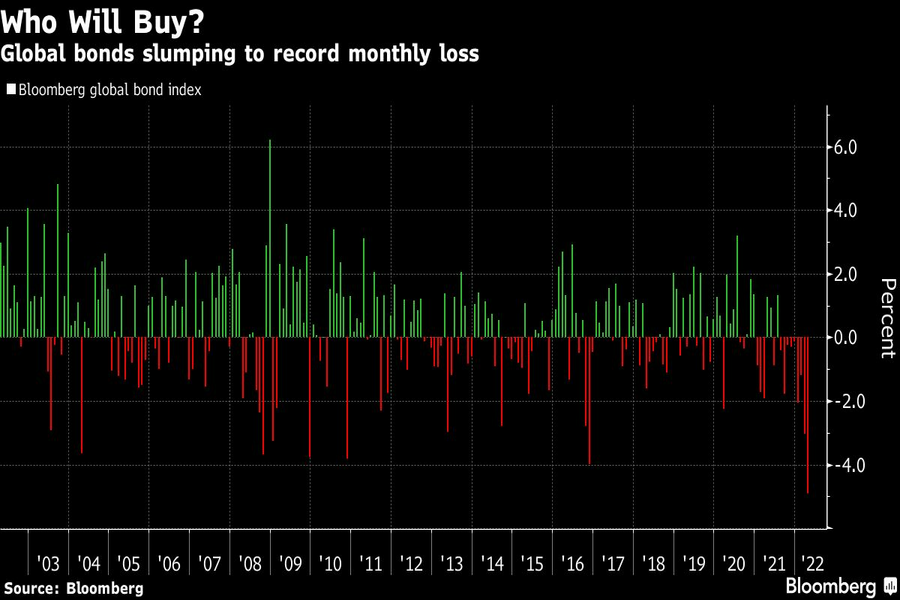

Global bonds are closing in on their worst month on record as investors brace for a flurry of rate hikes in the coming week, including the most aggressive U.S. tightening since May 2000.
The Bloomberg Global-Aggregate Total Return Index has lost 4.9% in April, putting it on track for the biggest monthly drop since its inception in 1990. Australia’s three-year yields climbed as much as seven basis points to 2.74%.

Fears of quickening inflation have torpedoed bonds worldwide, with a cut in Russian gas supply to Poland and Bulgaria and a red-hot Australian inflation print fueling expectations that the rout may continue. Swap traders are pricing in a half-point rate increase by the Federal Reserve on May 4 and also see the Reserve Bank of Australia and Bank of England raising borrowing costs next week.
“Until Fed pricing has run its course and stabilizes, global yields can rise further,” said Imre Speizer, a strategist at Westpac Banking Corp. in Auckland. “Investors will be reluctant buyers of bonds as long as Fed rate pricing keeps moving higher, or until they are more confident about pricing an eventual economic slowdown.”
Volatility in fixed-income markets is likely to remain elevated, as investors weigh the possibility that aggressive tightening by major central banks may derail global growth.
In the corporate debt universe, high-grade notes have lost 5.3% so far this month, according to a Bloomberg multi-currency global benchmark, putting it on track for their biggest monthly slump since March 2020 when the pandemic rocked financial markets.
Credit is especially vulnerable to the increasing stagflation risks generated by war in Ukraine and China’s Covid-driven woes. That’s because not only can inflation decimate investor returns, but a slumping economy also increases default risks for weaker borrowers.
“Stagflation remains our base case for the rest of the year as recession risk is increasing in Europe and central banks remaining committed to their course of policy normalization against the backdrop of very high inflation,” said Salman Ahmed, global head of macro and strategic asset allocation at Fidelity International.

Carson is expanding one of its relationships in Florida while Lido Advisors adds an $870 million practice in Silicon Valley.

The approval of the pay proposal, which handsomely compensates its CEO and president, bolsters claims that big payouts are a must in the war to retain leadership.

Integrated Partners is adding a husband-wife tandem to its network in Missouri as Kestra onboards a father-son advisor duo from UBS.

Futures indicate stocks will build on Tuesday's rally.

Cost of living still tops concerns about negative impacts on personal finances
RIAs face rising regulatory pressure in 2025. Forward-looking firms are responding with embedded technology, not more paperwork.
As inheritances are set to reshape client portfolios and next-gen heirs demand digital-first experiences, firms are retooling their wealth tech stacks and succession models in real time.
